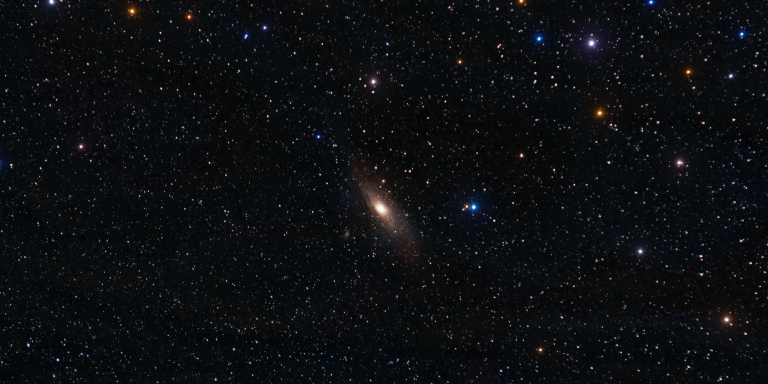
On May 18, the SETI Institute announced that the U.S. Department of Energy (DOE) is joining the Frontier Development Lab (FDL) program, a public-private partnership between the SETI Institute, NASA, USGS, Google Cloud, Intel, Lockheed Martin, Nvidia, Trillium Technologies, ESA, and other U.S. and international partners who are leaders in the AI, space exploration, and earth science markets.
FDL, hosted by the SETI Institute in Mountain View, California, is an applied AI research program that aims to push the boundaries of research and develop new tools to help solve some of the greatest challenges facing humanity. The lab’s research areas are space, Earth science, and energy.
The partnership, joined by the U.S. Department of Energy, includes NASA, ESA (European Space Agency), and has received continued support from DOE’s Artificial Intelligence and Technology Office (AITO), NASA Headquarters, NASA ARC, NASA MSFC, SETI Institute, and AI business partners Google Cloud, IBM, Intel, NVIDIA, Lockheed Martin, Mayo Clinic, MIT Portugal, USGS, Planet, and the Agence Spatiale Luxembourgeoise.
The four members of the interdisciplinary research teams composed of PhD and postdoctoral researchers, domain experts and ML, address research challenges such as astronaut health, lunar exploration, heliophysics and climate change. They are supported by massive computational resources, relevant data sets, and technology guidance from private sector partners for an intensive eight-week paid research sprint over the summer.
FDL says it is pleased to partner with DOE and add challenge topics that address key DOE priorities, such as energy futures, climate adaptation, and disaster response. Its director, James Parr, states:
“AITO’s challenge portfolio is one of the most exciting and important on the planet. Let’s say you really want to make a difference on the biggest issues of our time. In this case, it’s the front line: Co2 sequestration, H2 cost reduction, climate accelerated infrastructure adaptation and forest fires. Plus, it’s adult, serious AI-assisted problem solving and the kind of bold, ambitious research the human race needs right now. We are incredibly privileged to be working on these challenges with DoE, NASA, and others, and we look forward to tremendous research outcomes.”
Pamela Isom, director of DOE’s Office of Artificial Intelligence and Technology, meanwhile, states:
“Congratulations to the researchers, I look forward to meeting you! I am honored to co-sponsor this effort and sincerely appreciate the partnership with FDL. The U.S. Department of Energy (DOE) continues to ensure America’s security and prosperity by addressing its energy, environmental, and nuclear challenges through transformative science and technology solutions. We stand ready to apply these results, advancing climate resilience, clean energy, infrastructure innovation, and justice40 for citizens.”
Challenges addressing DOE priorities
During this 2022 year, FDL will undertake 7 DOE research challenges on topics selected by various divisions of the department:
Climate adaptation of the grid
DOE faces a multitude of risks posed by climate change, such as maintaining our society’s energy infrastructure against more frequent and extreme weather events. Can AI help determine the optimal approaches to ensure we adapt effectively?
Fortifying underground power grids
Can physics-based AI methods be applied to geophysical data to fortify our underground energy assets, such as site identification, line burial, earthquake preparedness, subsurface monitoring, and underground HVDC monitoring?
Geomechanics for CO2 sequestration
Can we apply ML to geomechanics and geophysics to advance innovations in predicting induced seismicity rates in potential Co2 sequestration sites? AI may be able to help estimate stress state using focal mechanism data, selecting seismic events from waveform data, or finding faults in reflection seismic data.
Forest fire: multispectral estimation of fuel loads
What if we could use ML-enhanced tools to prevent fires from starting or new fires from becoming conflagrations? The probability of ignition can change rapidly. Extreme precipitation leads to lush vegetation growth, which then dries out and becomes fuel. Can on-orbit multispectral cameras and ML identify the most fire-prone areas?
Urban Rad Hunter
Can we drive innovations in detection, identification, and localization in urban search missions? Currently, search teams rely on radiation detection systems to alert them to the presence of an illicit Nuclear Threat Source. However, due to the variation in background radiation and the presence of non-hazardous sources, detection algorithms must be carefully balanced between missing threat sources (false negatives) and reporting many false positives.
Optimization of the Concentrated Solar Power Controller
Based on a given control scheme (how CO2 flow, temperature and pressure vary with changes in ambient temperature and load demand), can we use AI to understand and derive relationships for each of these variables? For example, the air cooler heat load, target CO2 outlet temperature, CO2 flow rate, and predicted CO2 inlet temperature allow for optimized selection of air cooler design parameters including surface area, fan size and speed, material, etc.
The H2 Discovery Engine
Liquefied hydrogen gas is poised to become a key fuel in our future decarbonized energy landscape. Hydrogen production and delivery technologies are developing rapidly and in multiple directions, with new innovations occurring every day. How do we keep up with the latest research and determine which ideas will work as promised and evolve to useful levels? AI-enhanced tools can help us discover new ideas and identify the most promising ones through their relationships and track record.
Other challenge areas for FDL’s 2022 program will be heliophysics, lunar exploration, astrobiology, space medicine, and Earth science.
FDL is committed to diversity, equity and inclusion
FDL seeks researchers, mentors, and faculty representing diverse communities to address the wide range of challenges. Its teams have always been diverse, the program aims to reach a broad community, especially those underrepresented in tech and to include historically black colleges and universities, minority-serving institutions, and tribal colleges and universities.
FDL’s 2022 program kicks off June 20 at the SETI Institute’s headquarters in Mountain View, Calif.
Translated from Le Département américain de l’Energie rejoint le programme Frontier Development Lab









